Since the February 14 shooting at Marjory Stoneman Douglas High School in Parkland, Florida that left 17 students and teachers dead and an additional 17 wounded, gun control activists have focused much of their ire on Sen. Marco Rubio (R-FL), and today’s March For Our Lives was no exception. These attacks display a coldly partisan calculation and willful ignorance of the facts.
When student activist David Hogg spoke at the Washington, D.C. rally today, he essentially accused Rubio of profiting from the murder of schoolchildren. Think I’m exaggerating? Here are his words, as reported by The Hill:
Taking the stage at the “March for Our Lives” in Washington, Hogg placed a price tag on a lectern, representing the amount of money Rubio’s campaign took from the National Rifle Association (NRA) for each of the 17 victims of the Parkland shooting.
“First off, I’m going to start off by putting this price tag right here as a reminder for you guys to know how much Marco Rubio took for every student’s life in Florida,” Hogg said.
The student’s comments were the latest on Saturday to decry the NRA’s influence on lawmakers. Rubio is among the top recipients of NRA contributions in the Senate, having received more than $3 million in donations from the gun rights group and its affiliates, according to the Center for Responsive Politics.
First of all, this reporter is either being deliberately misleading or doesn’t understand how campaign finance laws work. That “$3 million” figure is over the course of Rubio’s two-decade-long career as an elected official and the vast majority of it is not donations to his campaign at all, but independent PAC money the NRA spent on ads, expenditures which Rubio has no legal ability to control or even communicate with the NRA in an effort to influence. It’s inaccurate to say Rubio “received” this money.
Secondly, to insinuate that Rubio took even a penny in exchange for “student’s lives” is absolutely vile. Rubio and his wife Jeanette Rubio have four children of their own that they love dearly and have never wished harm on anyone else’s children.
Then there were the many signs carried by protesters that targeted Rubio. One, captured by the Washington Free Beacon‘s Stephen Gutowksi, called Rubio a “kid killer” and “NRA B****,” mocked his religious beliefs, and another accused him of having blood on his hands.
This #MarchForOurLives attacks Marco Rubio for his Catholic faith and draws a blood cross on his forehead. pic.twitter.com/4zrhlkQreN
— Stephen Gutowski (@StephenGutowski) March 24, 2018
Here’s another. pic.twitter.com/IAWrabMW9I
— Jay Caruso (@JayCaruso) March 24, 2018
It should be noted who is not blamed on any of these signs: the actual murderer.
The Daily Caller‘s Benny Johnson, who attended the D.C. March, posted on Facebook earlier today that he “saw hundreds of signs condemning the NRA & legal, law-abiding gun owners” but “did not see a *single* sign condemning the shooter, Nikolas Cruz” nor any signs condemning the FBI or the Broward Sheriff’s Office for the many warning signs they ignored about Cruz.
Hogg, along with other pro-gun control student activists like Emma Gonzalez and Cameron Kasky, have repeatedly called out for action, for someone to “do something.” In a recent interview, Hogg can be seen on video saying that he became a gun control activist because “our parents don’t know how to use a f***ing democracy, so we have to.”
Here’s the inconvenient fact that Hogg and the other March For Our Lives protesters who are so angry at Rubio are forgetting: he has been doing something.
In fact, Rubio’s been doing a lot of somethings.
Here is a partial timeline of events during the past few weeks, pulled from Rubio’s Senate website, Twitter feed, and public news reports:
February 27: Rubio met with Stoneman Douglas students who traveled to DC to discuss legislative reforms.
Met with students of Marjory Stoneman Douglas High in DC today. We must ensure schools are safe places for our kids to learn. pic.twitter.com/ieahAdycn3
— Senator Rubio Press (@SenRubioPress) February 28, 2018
March 1: Rubio spoke on the Senate floor to introduce a plan to reduce school shootings, including co-sponsoring Sen. Orrin Hatch’s (R-UT) STOP School Violence Act, support for gun violence restraining orders, reforming school disciplinary systems that fail to report dangerous conduct to law enforcement, and co-sponsoring Sen. John Cornyn’s (R-TX) Fix NICS bill, which addressed failures in the national firearms purchasing background check system.
March 5: Rubio joined with other Senate co-sponsors to introduce the STOP School Violence Act and the NICS Denial Notification Act, which “assist[s] states with enforcing existing laws against individuals who attempt to purchase firearms but have no legal right to do so” by “requir[ing] federal authorities to alert state law enforcement within 24 hours when individuals ‘lie and try’ to purchase firearms, which can be a warning sign of criminal behavior.”
Rubio also sent a letter to Department of Justice (DOJ) Attorney General Jeff Sessions and Department of Education (DOE) Secretary Betsy DeVos urging them “to revise an Obama Administration directive to ensure that schools appropriately report violence and dangerous actions to local law enforcement.”
March 7: Rubio and fellow Florida Senator Bill Nelson (D-FL) introduced a bill to provide DOJ grants encouraging state legislatures to make gun violence restraining orders available to law enforcement, similar to the law passed in Florida after the Parkland shooting.
Rubio, along with twelve other Senators, co-sponsored The School Safety & Mental Health Services Improvement Act to increase funding for school counselors, alarm systems, security cameras and crisis intervention training.
March 8: Rubio met with Stoneman Douglas student Kyle Kashuv to discuss legislative reforms pending in Congress and an app Kashuv was developing to assist students help support each other and prevent violence in schools.
Speaking about @TheReachOutApp with Senator @marcorubio. pic.twitter.com/nceckAcIgG
— Kyle Kashuv (@KyleKashuv) March 8, 2018
March 13: Rubio and Hatch meet with Ryan Petty, whose 14-year-old daughter Alaina Petty was killed in the Parkland shooting, Ryan’s son Patrick Petty, and Kashuv.
Senators Hatch and @marcorubio, meeting with @rpetty, @Patrickpetty23 and @KyleKashuv in the President Pro Tempore Office discussing the need to make schools safer. #utpol pic.twitter.com/YRpZuQLOor
— Senator Hatch Office (@senorrinhatch) March 13, 2018
Later that day, Rubio, Hatch, Nelson, and several other Senators join Kashuv and the Pettys for a press conference to promote the STOP School Violence Act.
March 14: Rubio testified before the Senate Judiciary Committee to promote the various legislation he was supporting.
Rubio also met with Kashuv again that day.
Great sitting with my great senator from Florida again @marcorubio pic.twitter.com/ZsSLWQewZt
— Kyle Kashuv (@KyleKashuv) March 14, 2018
March 20: Rubio and Nelson introduced a bill to allow tax deductions for charitable donations to groups supporting the Parkland families to be claimed during the 2017 tax year.
March 21: The STOP School Violence Act is included in the omnibus spending bill. Rubio had been a vocal proponent of the bill being included and praised the decision.
Working to add #StopSchoolViolenceAct in the so called “omnibus” bill. If it is, we could see passage of this important law before the week is over. Thank you to everyone who is calling your Senators & members of congress asking that it be included. It’s making a real difference
— Marco Rubio (@marcorubio) March 20, 2018
Great news! The #StopSchoolViolenceAct will be included in the upcoming #omnibus spending bill. Lets get it across the finish line tomorrow!
— Marco Rubio (@marcorubio) March 21, 2018
March 22: Rubio, Nelson, and Sen. Jack Reed (D-RI) introduce “Red Flag” bill, which “will encourage states to give law enforcement the authority to prevent individuals who pose a threat to themselves or others the ability to purchase or possess firearms, while still providing due process protections.”
As RedState has reported, the risk protection orders enacted under the Florida law have already been used several times in just the past few weeks to seize weapons from those who have made threats against schools, and prevent the legal purchase of any other guns. One example was an Orlando-area college student who posted threats online and confessed to campus police that he “craved the adrenaline rush” of committing a school shooting, and another was Zachary Cruz, the brother of the Parkland shooter, who was arrested for trespassing at Stoneman Douglas and told the arresting officers that he wanted to “reflect on the school shooting and soak it in.”
Rubio also introduced a bill to ensure that schools report threats to law enforcement, the Asserting Basic Common-sense Coordination in School Discipline Act, or The ABCs in School Discipline Act.
March 23: Shortly after midnight, the Senate passed the omnibus bill. Later that day, President Donald Trump signed it into law, including the STOP School Violence Act and Fix NICS. Rubio cheered the passage of these bills and personally thanked Ryan Petty and Kyle Kashuv, along with the other Parkland families, for their work supporting the bills.
3 weeks ago we returned to DC hoping to make progress on preventing gun violence. Tonight Senate passed #StopSchoolViolenceAct & #FixNicsAct Thank you to 17 #Parkland families @rpetty @KyleKashuv & many others for all you did. Now lets get the #ExtremeRiskProtectionOrders done
— Marco Rubio (@marcorubio) March 23, 2018
In short, Rubio has been one of the most vocal and visible members of Congress on the issue of gun violence and school security for the past several weeks. He has sponsored or co-sponsored multiple pieces of legislation, working with members of both parties to earn bipartisan support. Some of these bills are already law, and others are taking solid steps towards that status. He has been in regular communication with the Parkland families to hear their input and to share updates about the progress of various bills.
But the March protesters not only gave Rubio zero credit, they sought to give him a large part of the blame, literally accusing him of having “blood on his hands” and profiting from the murder of children.
They shout into the microphones and tweet their outrage to demand reform, demand that someone “do something,” but vilify the very person who has been “doing something.”
Florida-based Republican strategist and former Rubio adviser Rick Wilson found the March protesters’ strategy profoundly foolish. “If you think someone is going to take up your legislation when you called them a murderer, you’re deluding yourself.”
“Rubio will be a Senator for at least four more years,” he continued, referring to Rubio’s re-election in 2016, meaning his term won’t be up until 2022. “The fact is that, no matter how passionate they feel about this, they need to not pretend that people won’t remember what they said.”
“They’re taking someone who could be an asset, and instead they are making an enemy of a potential ally, closing off avenues of discussion, and alienating people who genuinely want to help their cause,” Wilson concluded.
In response to today’s March, Rubio issued the following statement:
I commend those who today are peacefully exercising their First Amendment rights to march in favor of a gun ban. While I do not agree with all of the solutions they propose, I respect their views and recognize that many Americans support certain gun bans. However, many other Americans do not support a gun ban. They too want to prevent mass shootings, but view banning guns as an infringement on the Second Amendment rights of law abiding citizens that ultimately will not prevent these tragedies.
While protests are a legitimate way of making a point, in our system of government, making a change requires finding common ground with those who hold opposing views. Common ground is how we were able to achieve the STOP School Violence Act, improvements to our background check system, propelling CDC studies on gun violence and now, a ban on bump stocks. And finding common ground is what it will take to pass our red flag law so we can take guns away from dangerous people.
Read the first sentence of the second paragraph again. Making a point versus making a change: what is more likely to actually save lives?
The protests today made the point that the March protesters have many words of blame for Rubio, who has hurt no one and has been a driving force behind multiple, practical legislative reforms, and none for the actual killer.
Meanwhile, Rubio, along with his Senate colleagues and the family members of the actual victims have been working tirelessly to actually make a change.
Follow Sarah Rumpf on Twitter: @rumpfshaker.
This post has been updated.

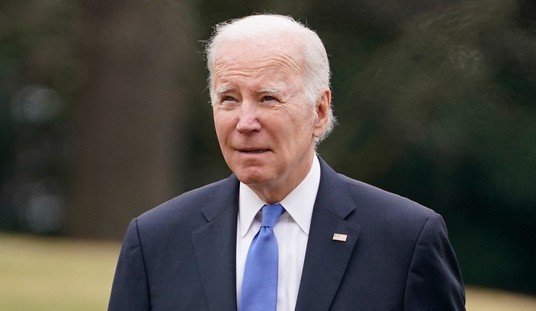
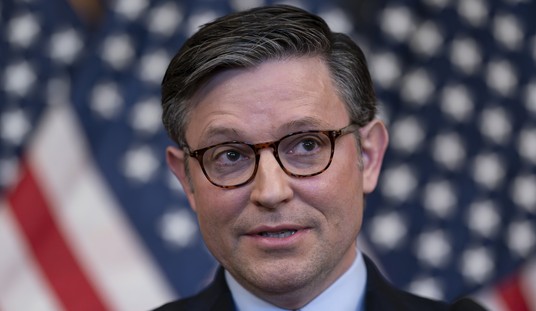
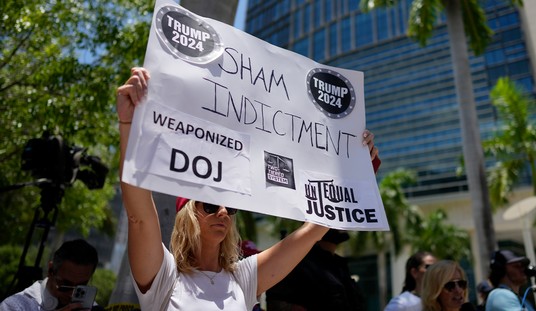




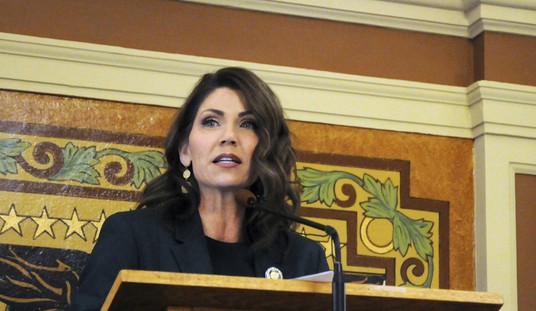



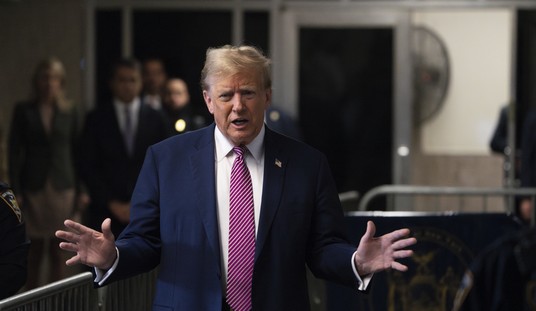
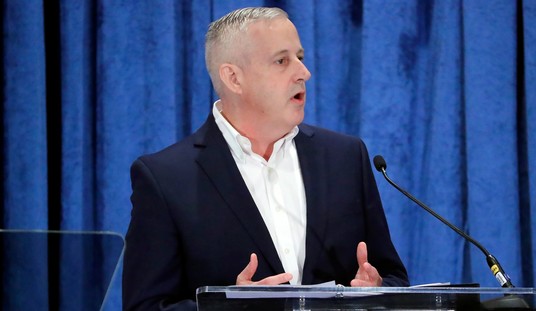
Join the conversation as a VIP Member